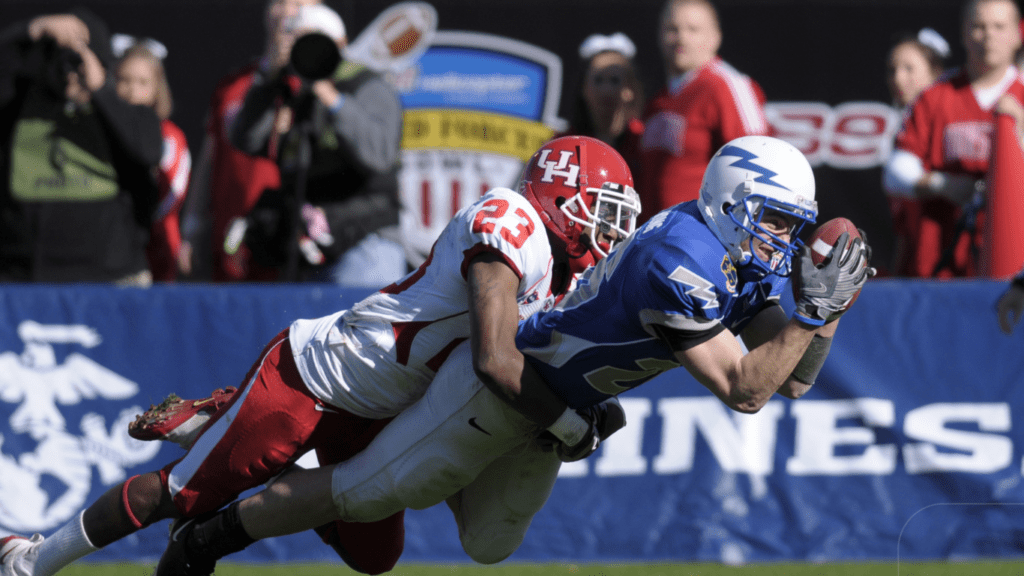As a sports enthusiast and a firm believer in the power of the mind, I’ve always been fascinated by the intersection of psychology and athletic performance, especially in the realm of football. In this article, I delve into the pivotal role that sports psychology plays in the world of football, exploring the techniques used and the myriad benefits they bring to players and teams alike.
From enhancing mental resilience to boosting confidence and focus, sports psychology techniques have revolutionized the way footballers approach their game both on and off the field. By harnessing the principles of positive thinking, visualization, and goal setting, players can sharpen their skills, overcome performance anxiety, and ultimately elevate their overall performance.
Join me on this insightful journey as we uncover the secrets behind the success of top footballers and teams, and gain a deeper understanding of how sports psychology continues to shape the landscape of modern football.
Understanding Sports Psychology in Football
I’ve delved into the realm of sports psychology in football, shedding light on its profound impact on players’ performance. Let’s explore the fundamental aspects and key psychological skills that are crucial in enhancing players’ mental game.
The Basics of Sports Psychology
In football, sports psychology serves as a vital tool in harnessing players’ mental strength and resilience. It involves understanding how psychological factors affect performance, both individually and as a team. By employing cognitive strategies and mental techniques, players can optimize their mindset to overcome challenges and perform at their peak.
Key Psychological Skills for Football Players
Football players need to cultivate essential psychological skills to excel on the field. These skills include resilience, focus, visualization, and goal setting. Resilience enables players to bounce back from setbacks, while focus sharpens their concentration during crucial moments in a match. Visualization helps players mentally rehearse their actions, enhancing their performance, and goal setting provides a clear direction and motivation for achieving success. Mastering these skills can give footballers a competitive edge and elevate their overall game.
Techniques Used in Sports Psychology for Football
In sports psychology for football, visualization techniques play a pivotal role in enhancing performance on the field. Visualizing successful outcomes, like scoring a goal or making a crucial save, helps athletes mentally prepare for actual game situations. By vividly imagining these scenarios, players can improve their decision-making skills and boost their confidence levels when facing similar challenges during matches.
When it comes to concentration and focus enhancement, mental exercises such as mindfulness meditation and deep breathing techniques are widely employed. These practices help footballers maintain a high level of focus throughout the game, enabling them to block out distractions and stay present in the moment. By training their minds to concentrate on the task at hand, players can react quickly to changing game dynamics and make split-second decisions with clarity and precision.
Benefits of Sports Psychology in Football

Sports psychology in football offers several key benefits that enhance player performance on the field. It’s crucial to highlight the advantages that this mental aspect brings to the game, ranging from individual player improvements to team dynamics.
- Improving Performance Under Pressure
When it comes to high-pressure situations in football matches, sports psychology plays a vital role in helping players maintain their performance levels. Techniques such as visualization and goal setting empower athletes to stay calm, focused, and confident during critical moments on the field. By utilizing these mental strategies, players can effectively deal with pressure, make better decisions, and perform at their best when it matters most. - Enhancing Team Cohesion and Communication
Apart from individual performance, sports psychology also contributes significantly to team dynamics by fostering cohesion and improving communication among players. By instilling techniques like mindfulness meditation and deep breathing exercises, teams can enhance their overall unity, trust, and understanding on the field. This cohesion leads to better coordination, collaboration, and support among teammates, ultimately strengthening the team’s performance and results in football matches.
Real-World Applications and Success Stories
I’ll delve into some case studies of successful football teams and share testimonies from renowned football coaches to illustrate the practical applications and benefits of sports psychology in football.
Case Studies of Successful Football Teams
Exploring case studies of successful football teams demonstrates the tangible results of implementing sports psychology techniques. Teams like FC Barcelona and the German national team have integrated mental training into their routines, leading to improved performance on the field. By utilizing visualization, goal setting, and mindfulness techniques, these teams have shown resilience, focus, and enhanced decision-making abilities during crucial moments in matches. The application of sports psychology has not only elevated individual player performance but also contributed to team success through enhanced communication and cohesion on the field.
Testimonies from Renowned Football Coaches
Renowned football coaches worldwide have attested to the transformative impact of sports psychology on player development and team success. Coaches like Pep Guardiola and Jurgen Klopp emphasize the importance of mental resilience, visualization, and goal setting in achieving peak performance from their players. Through testimonies, these coaches highlight how incorporating sports psychology techniques has not only improved individual player skills but also fostered a winning mentality within their teams. By prioritizing mental strength and psychological skills training, these coaches have witnessed a significant enhancement in their players’ performance under pressure and overall team dynamics.

 Chelsea Haynes is a valued member of the Awesome Football Network team, where she excels as a skilled contributor and article writer. With a sharp eye for detail and a deep love for football, Chelsea produces compelling content that covers a diverse range of topics, including team dynamics, player performances, and game strategies. Her insightful articles are crafted to engage and inform readers, providing them with a deeper understanding of the sport.
Chelsea's expertise and dedication to football journalism enhance the quality of content at Awesome Football Network. Her contributions help keep the platform at the forefront of football news, ensuring that fans and professionals alike stay well-informed and connected to the latest developments in the world of football.
Chelsea Haynes is a valued member of the Awesome Football Network team, where she excels as a skilled contributor and article writer. With a sharp eye for detail and a deep love for football, Chelsea produces compelling content that covers a diverse range of topics, including team dynamics, player performances, and game strategies. Her insightful articles are crafted to engage and inform readers, providing them with a deeper understanding of the sport.
Chelsea's expertise and dedication to football journalism enhance the quality of content at Awesome Football Network. Her contributions help keep the platform at the forefront of football news, ensuring that fans and professionals alike stay well-informed and connected to the latest developments in the world of football.
